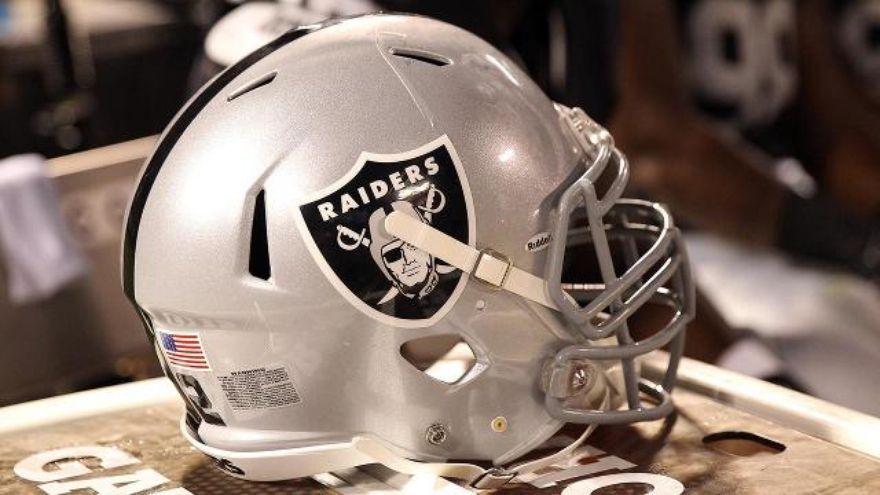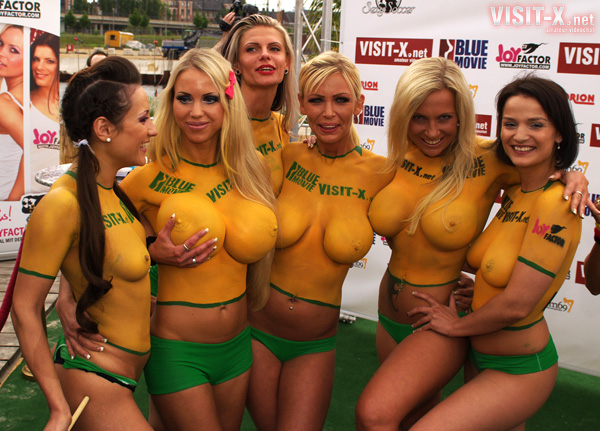Las Vegas Major League Gamble
Will Las Vegas big bet on professional sports pay off?

Website under construction! Ticket sales, concert, sports and scheduling is coming soon!
This domain name/website is also for sale or lease! Contact us at: tech2llc@gmail.com for information!
A new team coming to town?
Well it looks like Las Vegas is finally going to get that are an it deserves! This has been in the makings for sometime now an it looks like 2016 will be the year! With the city pushing to get a major sports team under its belt, I guess it only makes sense to have a place for the team to play at before the team arrives right? With the city’s strong push for the symphony park soccer stadium looks like one way or another Las Vegas will succeed again on something that will be an awesome venture for the city of Las Vegas! With EDC growing every year a large stadium will surly be the ticket for events like that. Las Vegas is forever changing and is always setting the standards for bigger and better things and this is no exception to the rule! Yes there has been some very rough times for Vegas but they always seem to stay afloat and are always finding new ways to push the envelope! With a new arena and/or stadium in its near future, I’m sure it will only bring even more excitement to the place that everyone can’t seem to get enough of. Las Vegas is bouncing back in a big way and all I can say is to buckle your seat belts because the next few years is going to be something very special when it comes to the city of entertainment! Stay tuned to this website because it is here to keep you updated on all the progress and events surrounding the new arena as well as the new stadium!
LAS VEGAS – Games are everywhere here. Just step off a plane at McCarran International Airport and you’re immediately hit with the bright lights of slot machines and electronic card dealers. On Vegas’ famed Strip, you can find everything from good old poker and blackjack to casino war, craps and roulette.
But there’s recently been a push to bring a new kind of game to town: major league professional sports.
Both the National Hockey League and Major League Soccer have taken a keen interest in placing franchises in Sin City, which is one of the last significant American cities without any major pro sports teams. The Las Vegas city council voted recently to spend nearly $60 million (or more, depending on how and what you count) on a stadium to house a future MLS franchise and private developers are building a separate arena with an eye toward luring a pro hockey team.
However, many question whether Las Vegas is fertile ground for major professional sports and what role major league squads can play in a city that has already dubbed itself the Entertainment Capital of the World. Would pro sports actually be a safe gamble for Vegas, especially with public money on the line? The data and the history point to “no.” This is one instance where the house is unlikely to win.
[SEE: Political Cartoons on the Economy]
‘Nobody skates there!’ Tucked behind the New York-New York and Monte Carlo casinos, the structure that will one day be Las Vegas Arena rises into the sky, the skeletal outline of an arena-shaped space apparent amid the dust and din of ongoing construction. The $350 million arena, slated to open next year, is being built by AEG and MGM Resorts International, giving a future sports team an obvious home right on the Strip (where it would technically be in Paradise, Nevada, not the actual city of Las Vegas).
The arena’s owners have already welcomed the idea of an NHL team hitting their ice, while the league has given the go-ahead for a would-be NHL franchise owner, William Foley, to start a ticket drive to gauge interest in a possible Vegas team. “Las Vegas is a hockey city, and we believe THE TIME IS NOW to make it happen!” Foley wrote in an email, caps included, attempting to drum up support for the drive. NHL Commissioner Gary Bettman, meanwhile, said last month of Vegas, “I think in a whole host of ways, some of them very good and extraordinary, it’s a unique market.”
Is Vegas actually a hockey city, though? Skepticism is certainly warranted – even looking beyond the city’s obvious desert qualities – as the NHL’s record in traditionally non-hockey environs has been underwhelming. In the 1990s, the league shifted away from its traditional base in Canada and the American Northeast toward the U.S. South and West in an attempt to widen the game’s appeal and fan base. The league has mostly crapped out in the warmer climes.
The franchises in Dallas and Nashville consistently rank in the bottom third of the league’s attendance figures – and they’re the closest things to success stories. The Arizona Coyotes have been a basketcase of a franchise, falling into bankruptcy and eventually needing to be taken over by the league itself; the city of Glendale, Arizona, threw millions of dollars at the Coyotes and their home, now called Gila River Arena, with little hope of ever seeing a return. The Florida Panthers and Tampa Bay Lightning, meanwhile, are two of the NHL’s least valuable franchises.
But the Atlanta Thrashers are the league’s worst example. After just a decade of low attendance, financial trouble and poor results, the team decamped for Winnipeg, Manitoba (the city from which the franchise currently in Arizona originated), where it now plays as the Jets.
“[The NHL has] had this Sun Belt sort of plan for development, and it hasn’t really done very well if you look at attendance,” says Dennis Coates, an economics professor at the University of Maryland–Baltimore County who studies sports and stadiums. And the prospect of Vegas bucking the trend isn’t good, he adds, saying that the league may “never build a fan base in Las Vegas for the same reason they couldn’t in Atlanta. Nobody skates there! They don’t play hockey. And so the natural followers of the sport just don’t exist there.”
In fact, according to an analysis by the website FiveThirtyEight, “there are only 91,000 hockey fans in the Vegas media market, which is nearly 40 percent fewer than even Nashville, Tennessee, the least-avid current NHL city, has.” The analysis, based on Internet search traffic, led FiveThirtyEight to the following conclusion: If Las Vegas “follows the league’s heretofore-established relationship between fan base size and financial success, it might be all but impossible for its new team to turn a long-term profit without a change to the underlying economics of the NHL as a whole.”
[SEE: 2014: The Year in Cartoons]
Adding to the trouble is that Las Vegas has a large Hispanic population, which has not traditionally been inclined to tune in to ice hockey. Vegas is also just the 41st largest television market in the U.S.; the only smaller market that currently has an NHL team is Buffalo, New York.
That said, the Business Journals estimated that, by available personal income, Vegas is actually one of the most attractive potential locales for an NHL team. The league has also successfully hosted NHL preseason games in the city for the last few years. And either way, the Las Vegas Arena is being built thanks to private funds, with or without a major sports tenant, its owners banking on a stream of other events – concerts, boxing matches and the like – to fill seats and pay the bills. The same can’t be said for a potential MLS stadium.
‘Penn and Teller live here.’ “This has been the most one-sided feedback from constituents ever, saying ‘don’t do it,’” says Las Vegas Councilman Bob Beers, who has been one of the leading opponents of using public money to finance a soccer stadium in the city. “This is not the first suggestion of professional sports here. They have all either not gotten off the ground or if they have gotten off the ground, have pretty much folded.” Indeed, the city has played host to a series of ill-fated franchises in various less-than-major leagues, sporting names such as the Rattlers (semi-pro basketball), the Silver Bandits (from the long-forgotten International Basketball League) and the Sting (the Arena Football League). The Las Vegas 51s, the city’s Minor League Baseball team, ranked dead last in the Pacific Coast League in average attendance last year.
Beers, drinking red wine instead of his namesake beverage, was chatting in Mundo, a restaurant in an area known as Symphony Park, which is where the future Las Vegas soccer stadium would be situated. The council voted last month, by a count of 4-3, to approve $56.5 million in subsidies for the building of the facility, which doesn’t include the cost of the land that the city would be giving away ($38 to $48 million), or of a $20 million parking garage the city plans to build that would provide space for events in the stadium.
Las Vegas Mayor Carolyn Goodman, who called the building of a soccer stadium a “once in a lifetime opportunity,” has made the case that the venue would boost economic development and growth in a still rather sparse section of Vegas proper. “Our charge is to help the downtown sustain a viability as a place to come to,” she said last month, echoing similar calls from officials all across the country who want to spend public money on private sports facilities. Las Vegas’ 2013 Economic Development Investment Strategy also includes building a sports facility at Symphony Park and wooing a major league team as goals.
Goodman even warned of dire consequences in her recent State of the City speech if stadium opponents get their way. “Without substantive and new reasons to visit our downtown, our city businesses will be challenged to stay open. Our casinos and hotel rooms will not be filled. Our shops, our galleries, our taverns, our restaurants will empty,” she said.
However, the academic research doesn’t support her. In fact, the overwhelming majority of it shows the opposite: Stadiums, arenas and professional teams don’t drive growth, development or personal incomes in any significant way. Some research has even found that professional sports can be a net negative for a metro area. Of course, that hasn’t slowed the deluge of public money being spent on such facilities; in 2010 alone, billions of taxpayer dollars went to new stadium construction or renovations.
Is there any reason to think Vegas’ bid on an MLS stadium would produce different results? According to the experts, there isn’t.
[READ: Save College Sports Before It’s Too Late]
“People go to Vegas for particular purposes: gambling, seeing shows and so on. And how is this sports franchise – Major League Soccer, NHL, whatever it might be – going to impact that? I don’t see how it’s going to add anything in any serious meaningful way,” says Coates, the economics professor.
At issue is something called the substitution effect, which is what happens when spending that would have occurred on one thing – in this case, maybe a concert or some hands of blackjack – instead goes toward something else, such as a soccer game. Shuffling money around in that manner doesn’t cause economic growth; it just causes benefits to accrue to one private entity at the expense of another.
“Are they going to generate new visitors to this facility or are they going to have visitors in Las Vegas go there as opposed to [University of Las Vegas] football games and basketball games? If that’s what happens, all they’re doing is moving money from one place to another,” says Coates. “What they really need to do is attract people into this facility who would not have spent their money in Las Vegas in the first place. I’m really skeptical that they’re going to do that.”
Beers agrees. “Penn and Teller live here,” he says, referring to the famous magician duo before stringing off the number of other acts, including Kiss and Elton John, attracting visitors to the city, and which would be in competition with any new sports team for tourists’ limited dollars.
‘A nighttime city.’ If enough tourists don’t show up, then, can locals make up the difference? That brings up another problem: Vegas’ all-night work schedule. “We also are unique in that we have an economy based on being alive 24 hours a day, which takes employees,” Beers says. “It’s not like we have an entire city of workers who, once the sun goes down, are looking for something to do.” This is an issue the NHL has acknowledged, with Deputy Commissioner Bill Daly saying, “It’s a nighttime city, so it would have to be uniquely scheduled in terms of focusing maybe on industry nights as opposed to your typical Thursday-Saturday nights where everybody would be working.”
Casting more doubt on the idea that the city is a good fit in terms of building a local fan base was a feasibility report on a Las Vegas MLS stadium produced by the technical and management support company AECOM . Though generally coming off as bullish on the stadium, it noted that Vegas would be the fourth smallest metro area hosting an MLS team, with the third lowest median household income. (The report itself has been a bit of an embarrassment, initially double counting money – a mistake which, once corrected, turned the stadium’s estimated profits into a loss.)
Add to that the fact that the Las Vegas Legends of the Major Arena Soccer League pull in a scant 1,465 people per game, and there’s little reason to bet on locals coming to an MLS stadium in droves. (Yes, tourists could and likely will buy tickets, but then the substitution effect comes into play.)
All told, then, it’s unlikely that the stadium will provide the boost its proponents claim. “I don’t think too many realistic people anymore seem to buy the economic benefit argument, so you have to stop and say ‘Okay, it’s a social benefit.’ And that’s hard for an old accountant like me to measure,” says Beers.
Beers, along with the other two council members who voted against the stadium plan, are part of a drive to give voters the opportunity to deny any public funding from going toward an MLS stadium. According to early reports, they’re having little trouble rounding up the signatures needed to put a question on the ballot. But stadium referendums aren’t often successful. The only saving grace for the city may be the deal’s condition that MLS actually award it a franchise, which is far from a certainty, before the stadium plan moves forward.
[READ FCC Finally Votes to Sack the NFL Sports Blackout Rule]
‘Play the gambling card.’ But might professional sports leagues want to have a foothold in Vegas for some other reason than the potential for ticket sales? Robert Baade, a professor of economics and business at Lake Forest College, believes so.
“The reluctance to relocate to Las Vegas has always been because of the close link to the gambling industry. But more and more, I think, professional sports leagues and teams are coming to the recognition that gambling is a very important and potentially lucrative revenue stream,” he says. “To ignore it is to ignore something that could contribute significant amounts of money to league coffers.”
Sports betting is currently illegal in most U.S. states (but not Nevada) thanks to a 1992 law, the Professional and Amatuer Sports Protection Act, that was vigorously supported by the major professional sports leagues. In October, when New Jersey Gov. Chris Christie signed a bill that would have legalized sports betting in the Garden State, the NBA, NCAA, NFL, NHL and MLB all filed suit to stop it, saying that the federal statute rendered Jersey’s law illegal. A U.S. district judge agreed, putting Jersey’s entrance into the sports betting market on ice.
But the leagues may be changing their tune. “Betting on professional sports is currently illegal in most of the United States outside of Nevada. I believe we need a different approach,” wrote National Basketball Association Commissioner Adam Silver in a November New York Times op-ed. “I believe that sports betting should be brought out of the underground and into the sunlight where it can be appropriately monitored and regulated.”
Mark Cuban, the charismatic owner of the NBA’s Dallas Mavericks, agreed, noting the potential for gambling entities to partner with the professional leagues. “We’ll charge the casinos for information sources, video sources,” Cuban said. “All you’ve got to do is look overseas. You can go and legally bet on the NBA in the U.K. and a bunch of other countries, and they’re actually big customers of NBA video. … So you’ve got a template already that’s legal in the rest of the world other than America.”
Indeed, many European countries allow sports gambling without the fears of match-fixing and other chicanery actually coming to fruition. Advances in technology and the growth of fantasy sports games – which the pro leagues have embraced as games of “skill” rather than “luck” – have made it easier than ever to put money at stake on the outcome of a pro game.
And a lot of money is potentially at stake. Good estimates are tough to come by, but it seems clear that tens of billions, if not hundreds of billions, of dollars are wagered illegally on sports in the U.S. each year. That’s a very lucrative market if the major sports leagues can tap into it, and New Jersey is not the only state where lawmakers are eyeing the potential revenue from legalized gambling, either; Indiana and California have both tried to make the same play.
However, that doesn’t mean all leagues are necessarily psyched about the association. “You don’t want guys in the stands with bet tickets in their hands and the only reason they’re watching the game is so they can cash in on a bet afterwards,” said Daly, the NHL deputy commissioner. “That’s not an environment you want to foster or create as a professional sports league.”
[READ: Maryland TV Tax Credits Are a Real House of Cards]
Still, what better way to make the connection between major sports and gambling legitimate than placing a team in the heart of Sin City? It may be that the one thing most everyone associates with Las Vegas – gambling – is also the thing that brings major sports there, despite all the other potential pitfalls and problems.
“They’re really willing to play the gambling card in a big way,” says Baade. “I really see this as inevitable. Las Vegas is going to be given a chance.” For the city, then, it may be that sports become the ultimate roll of the dice.













